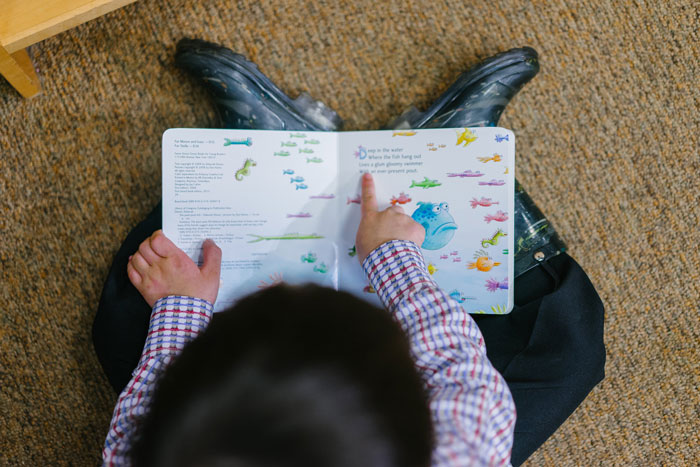Strategies to Motivate Your Kid to Learn
School is an important stage in children’s development because it imposes on them multiple new responsibilities, both routine ones – attending classes, looking after their books and stationery, and academic – seeing to their homework and projects, trying to do their best. It is not every child who applies himself to the new tasks happily. There are students who have little interest, find it hard to organize themselves to suit the school routine. It’s up to parents to help the kid adapt to demands and learn to do well – and this is to be achieved by proper motivation and not by coercion.
Learn what puts your child off studies
There are reasons and reasons why your child is indifferent to his school performance. If you succeed in discovering the source of this indifference you will be able to devise a plan how your child could get rid of whatever it is that makes them evade doing their homework.
Common reasons responsible for poor motivation include:
- inability to grasp the material
- lack of challenge in set tasks
- work doesn’t agree with their individual style of learning
- anxieties related to school and school activities
- lack of self-confidence
Let your child stand at the helm whenever it is reasonable
For a number of children, education equals so much control. Feeling penned in by controlling forces, or, on the contrary, experiencing a lack of proper control, they start to disregard learning. Obviously, they need guidance through new responsibilities to make them look less daunting, but it’s important to let them know they are in control of the situation.
Both in the classroom and after school children should have options that they know await their consideration and decision. Provide as many such options as possible. Children can easily be given the right to choose most captivating topics when they are working on theoretical material.
Another weighty aspect is to let kids choose the extracurricular activities after their own hearts. Thereby you ensure that their input will be made more willingly, their motivation will be greater and they are apt to be more involved in these activities.
Avoid pestering your children
While you are working hard to motivate your kids, it’s essential to take care not to pester them. We may think of children annoying their parents, but the truth is, parents often go annoying their offspring as well. Being constantly at them to perform tasks can irritate children and put them off school work.
Also, mind that motivation isn’t achieved by lecturing – lecturing often leaves children with feelings of resentment and boredom.
Actually, lecturing is not that effective, putting as it does kids in a passive role. A discussion will serve your purpose better, making the kid(s) feel involved.
Avoid letting them know they are not good enough
Before you let it grow into a habit, forgo telling your child in the face that he or she is not up to the mark. Such remarks slip out unnoticed, and they are highly incidious.
You may have to be a bit devious about it. Devise ways to offer praise instead of fobbing them off with words like “Sure you can do better than that.” This is not encouragement, but a signal to the child that you are dissatisfied with the result, leading to disappointment and abandonment of the task.
Work on structure and setting convenient routine
A well-structured life with an established routine helps families avoid disagreements and bickerings; it can also assist in building up your children’s motivation in education.
In terms of doing homework, once your child knows that evening time from 7 to 9 pm is allotted to homework, there will be no argument about getting down to work because everyone has long accustomed themselves to complying with the set routine.
No routines often mean the child can raise objections, postpone sitting down at their homework and engage the parents in meaningless arguments.
Establish communication that is open and honest
Make sure you listen to your kid commenting on the progress of their education on a regular basis. There must be no communicative barriers so that the child feels free to voice their preferences or worries.
As the child expresses his or her views, validate them, no matter whether you accede to them or not. Don’t let the kid grow to believe that his or her opinion is of no import. That will undermine their motivation.
Children who go along fine are usually those who know that they will be listened to, their opinion will be taken into account, and their reports about their experience will not be waved aside as negligible.
Make studying easy and comfy
Studying should be a concentrated activity devoid of outside irritants; the child must know that everything necessary is at hand and it remains only to do the work. Things to be provided include:
A quiet area: the child studies in a quiet spot far from anything distracting.
Victuals: make sure the child is not distracted by feelings of hunger and thirst. Let them have a snack before they begin their studies and provide a drink to quench thirst without them losing focus.
The needful tools: see that pencils, a calculator, an eraser, and whatever else they may require are at hand and the child won’t go looking for them and getting distracted on the way.
Eliminate potential distractions (smartphone or an open window)
When the child’s workplace is ready and comfy, there will be no excuse for him or her to delay or interrupt the proceedings.
Try out several types of learning techniques
We are all different, and it relates to learning styles too: there are various attitudes to how material must be delivered. Some like a lot of visual support, others want more explanations; many kids‘ perception depends upon a variety of styles.
Learning styles cannot be good or bad. The point is to be aware of your child’s personal learning preferences. Knowing that parents can apply relevant techniques designed to increase the rate of learning and make it easier.
Basically, seven learning styles can be designated: Visual, Auditory, Verbal, Physical, Logical, Social and Solitary. With young schoolers, advisable would be to try all of them and differentiate those to which the kid responds best.
Use games to facilitate learning and make it more entertaining
Mixing games into learning is actually nothing new; the idea dates back to old times. Learning made up of strings of games is considered to be productive in many ways. Edifying games offer a strong motivation for children of all ages, hold out opportunities for a better grasp of the material, provide multifold developmental techniques.
This learning style allows both teachers and parents to evolve new ideas, make up their own games suitable for every learning stage, eliminate the notion that learning is a tedious process.
Accentuate the amassing of knowledge rather than performance
The customary after-school questions are what grade the child received for today’s test. But a more important thing would be what new exciting things she learned at school, what topics they discussed.
It’s great to emphasize the knowledge he or she accumulates instead of harping on grades. This is not to say performance is nugatory; but placing it second, you gain the following advantages:
- your kid comes to realize that learning is for knowledge more than for grades,
- while results are welcome, the point lies in progress,
- her personal development is more significant for you than performance,
- placing emphasis on what was learned you make the child recount the material of the day thereby setting it deeper into the memory and maybe generating a better understanding.







